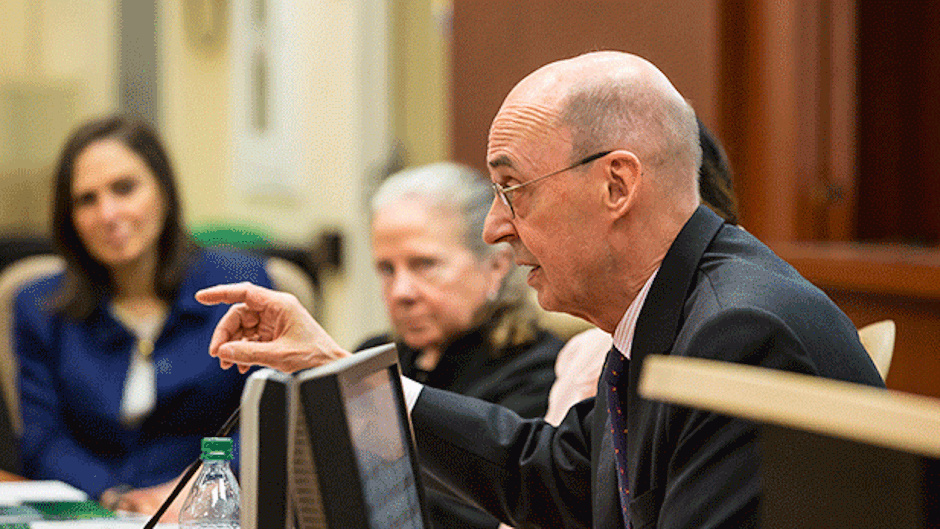Albert Jan van den Berg. Watch the video of the lecture and a video of the Q&A.
Professor (Dr.) Albert Jan van den Berg, founding partner at Hanotiau & van den Berg, the world-class international arbitration boutique firm, spoke at the third annual Carolyn Lamm/White & Case International Arbitration Lecture at Miami Law, delivering “Reflections on the 60th Anniversary of the 1958 New York Convention on the Recognition and Enforcement of Foreign Arbitral Awards.” The lecture was sponsored by Miami Law's International Arbitration Institute.
Commemorating the 60th Anniversary of the New York Convention, the lecture was a bittersweet appeal to the international arbitration community to acknowledge the success of the Convention while recognizing the many places where the text has derailed in practice. van den Berg synthesized two reasons for the effectiveness of the Convention being in danger – the scheme of the Convention no longer corresponds to the needs of the global community; and misguided judicial interpretation has precipitated the text beyond recognition.
With this premise, van den Berg undertook an article-by-article analysis and pointed to the numerous deficiencies and failings of the text. He also elaborated on how these shortcomings were fixed in the Miami Draft Convention – a hypothetical convention that he had launched a decade ago.
He started his analysis of Article I – Field of Application – and explained that the Convention applied to an award made in another state or a non-domestic award. A non-domestic award is further one where the award is made in the enforcing state under the laws of another state or because the arbitration contains a foreign element. While the first is an academic indulgence that does not find prevalence in practice; the second is a creation of the U.S. courts. The complexities of subsequently overlapping annulment and enforcement procedures that closely shadow an imprecise scope was presented in a tabular format.
The next fissure analyzed was that posed by Article II (32). In its current language, he explained, the Convention does not cover the modern parlance of tacit acceptance, making it, he said, “the biggest stumbling block under the Convention.”
The second part of the lecture focused on judicial attitudes as obstacles. van den Berg pointed out that the Convention was drafted with a scheme to balance the rights and obligations between petitioners and respondents. Courts have prominently relied on the “may” in Article V and the more-favorable-right in Article VII to indulge in fanciful interpretations and distorted the intended balance, leading to an “anything goes” perspective by courts.
In conclusion, van den Berg urged that an amendment is the only viable solution. The United Nations Commission of International Trade Law-endorsed guidelines are not sufficient, and it is time for the community to take substantial steps toward progress.
Recognizing that critics might remark that there is no political will, he confessed that he is an optimist – it took 25 years to replace the Geneva treaties, maybe we needed 60 years to amend the New York Convention, he said. Marike Paulsson, director of Miami Law's International Arbitration Institute, echoed the sentiment yet counseled that it was time to revisit the Convention by an amendment or supplementary commentary.
More on International Arbitration at Miami Law
More on Miami Law's International Arbitration Institute

